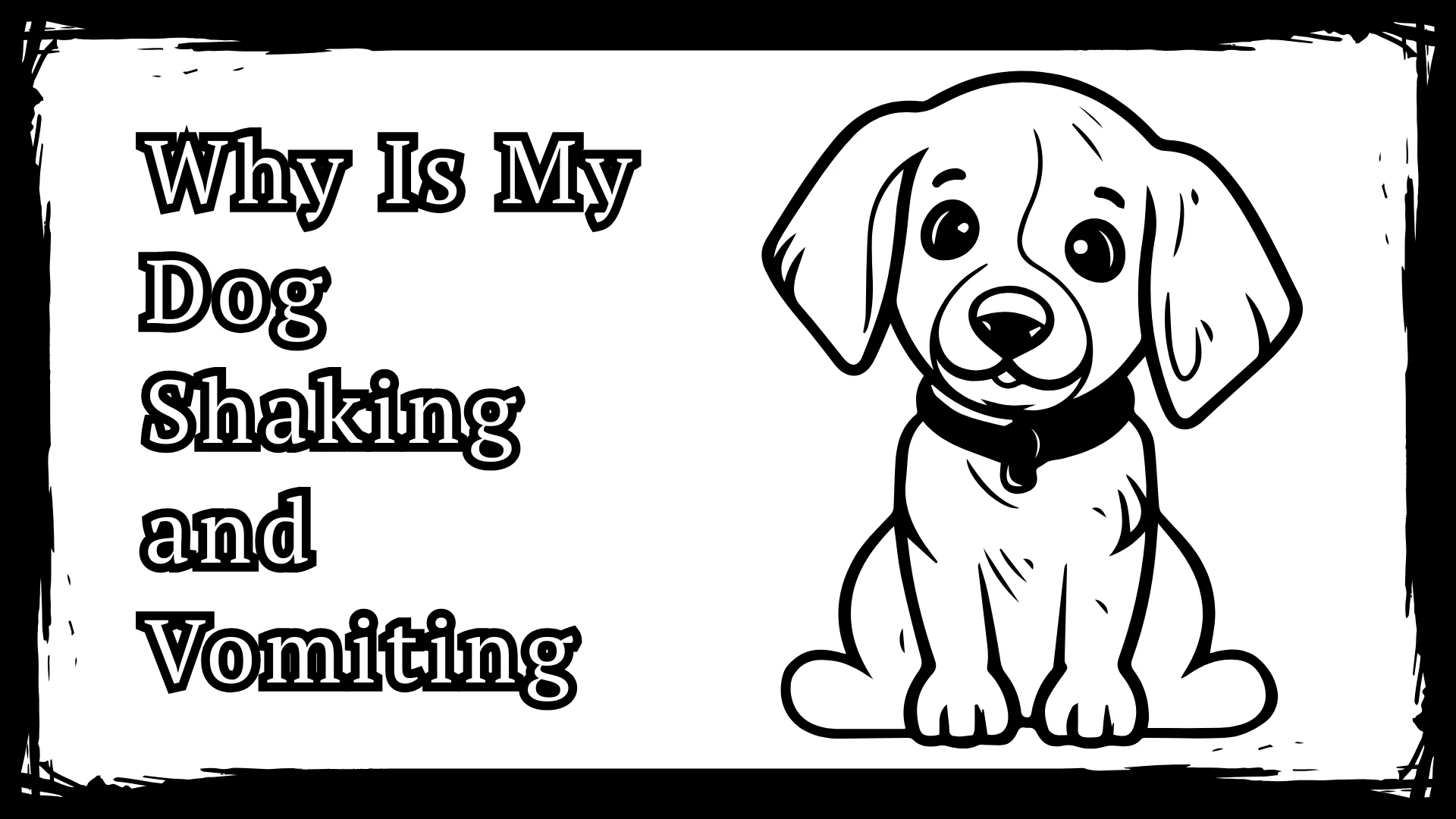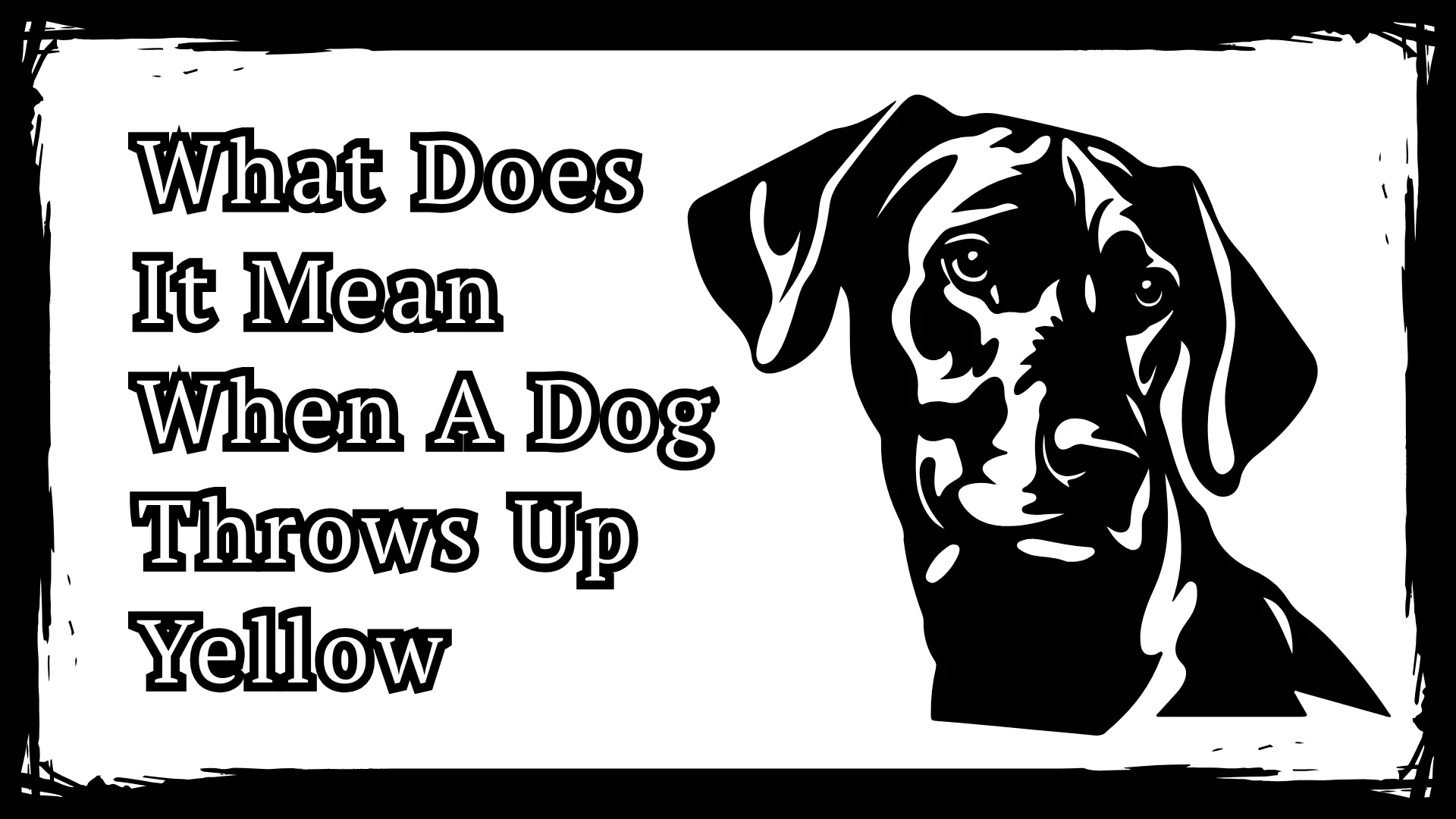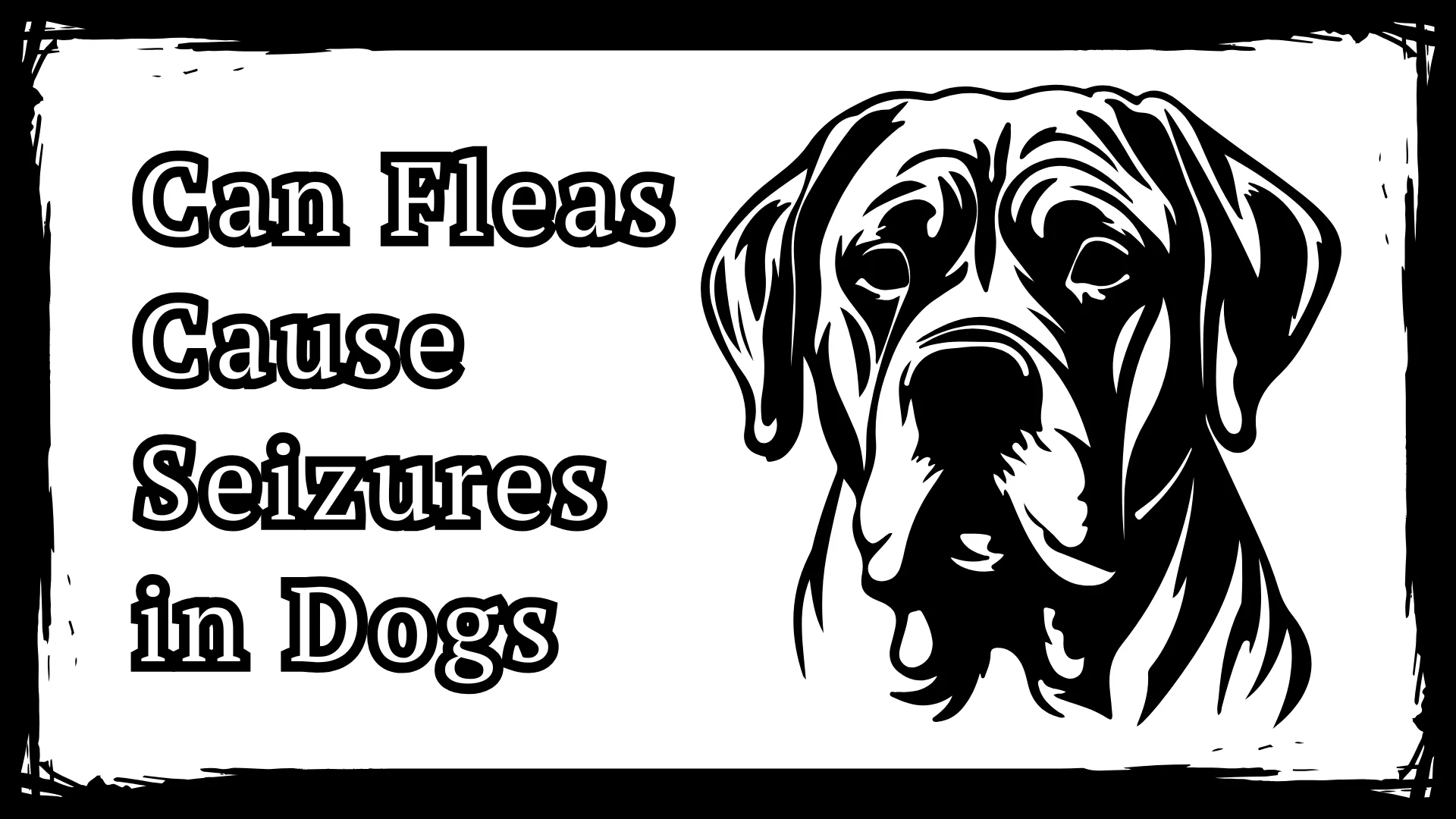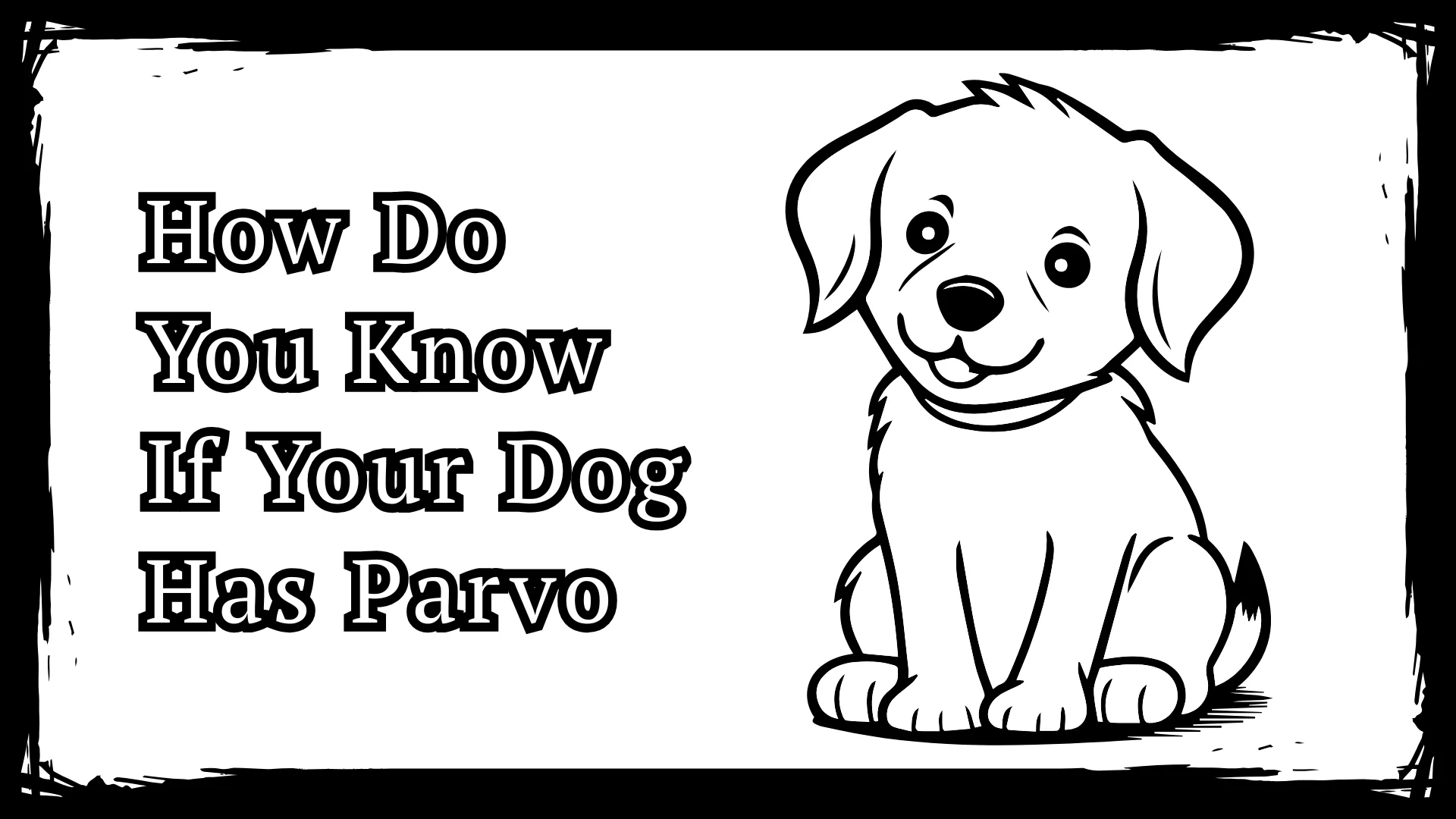Why Is My Dog Shaking and Vomiting – 6 Essential Reasons

Watching a beloved dog shake and vomit can be very worrying for any pet owner. These signs often indicate that the dog’s body is struggling with something.
Dogs may shake and vomit due to gastrointestinal distress, toxins, anxiety, pain, or medical conditions like pancreatitis and low blood sugar. These symptoms often signal discomfort or illness. Immediate veterinary care is important to diagnose the cause and provide effective treatment, ensuring your dog’s health and safety.
This guide explains why dogs shake and vomit, what to watch for, and how to provide the best care.
Table of Contents
ToggleWhy Is My Dog Shaking And Throwing Up?
When a dog starts shaking and throwing up, it is often a sign that something is making the dog uncomfortable or unwell. These most common symptoms:
Gastrointestinal Distress
One of the most common reasons a dog shakes and vomits is that their stomach or intestines are upset. Eating spoiled food, grass, or something irritating can cause the digestive system to react badly. This upset, called gastrointestinal distress, can bring on nausea, cramps, and weakness, which leads the dog to shake. Sometimes the dog may have diarrhea or lose its appetite as well.
This tummy trouble might happen from eating something unusual or foods that don’t agree with them. Puppies, in particular, are prone to chewing and eating things they shouldn’t. The gut tries to get rid of the bad stuff through vomiting, and shaking can happen due to pain or dehydration. Often, dogs with this issue need rest, water, and sometimes a trip to the vet if symptoms last.
Toxin Exposure
If a dog eats something poisonous, the shaking and vomiting could be a serious emergency. Common toxins include household cleaners, certain plants, chocolate, grapes, and sugar substitutes like xylitol. When toxic substances enter the dog’s system, they cause quick, strong reactions, like trembling, excessive drooling, vomiting, and weakness.
Toxin exposure can also damage organs like the liver or kidneys very quickly. Because of this, it’s important for owners to watch carefully if the dog gets into anything harmful and to call a veterinarian immediately if these signs appear. Speedy treatment can save a dog’s life.
Pain Or Injury
Pain is a powerful cause of shaking paired with vomiting. Dogs might be suffering from internal pain caused by injuries, recent surgery, or health problems like pancreatitis (inflammation of the pancreas). Even if the pain is not obvious on the outside, it can cause trembling or shaking as the dog tries to cope.
Injuries to bones, joints, or muscles can also bring about shivering and a sick feeling. When pain is involved, the dog may appear restless and may avoid moving too much. Owners should look for signs like whining, limping, or a hunched posture and seek veterinary advice to ease their dog’s discomfort.
Infections And Illnesses

Various infections can cause dogs to shake and vomit, sometimes alongside other signs like fever, lethargy, or diarrhea. Viral infections, such as parvovirus or bacterial infections that impact the digestive system, can make dogs feel very sick, leading to vomiting and muscle tremors.
Chronic illnesses such as liver disease, kidney failure, or hormonal disorders like Addison’s disease often affect several parts of the body at once, involving symptoms like nausea, weakness, and shaking. Timely medical diagnosis and treatment can help manage these illnesses and improve the dog’s quality of life.
Neurological Disorders
Neurological problems affect the brain, nerves, or spinal cord and sometimes show symptoms like unsteady movements, confusion, or seizures accompanied by vomiting and shaking. Conditions like vestibular disease can cause imbalance and trembling, making dogs feel dizzy or nauseated.
When shaking involves loss of coordination or sudden odd behavior, it is a sign that the nervous system is affected. Dogs experiencing neurological disorders need prompt assessment to identify the issue and provide supportive care.
Anxiety And Emotional Stress
Not all shaking and vomiting comes from physical illness. Stress, fear, or anxiety may cause a dog to tremble and throw up. Loud noises, car rides, crowded places, or separation from owners can make some dogs feel scared or panicked.
The body’s reaction to anxiety can upset the stomach and cause nausea, leading to vomiting and shaking. While this is generally less dangerous than physical problems, persistent anxiety should be addressed with patience, routines, and sometimes professional guidance to keep the dog calm and happy.
How Stress And Anxiety Can Lead To Shaking And Vomiting
Dogs under stress or anxiety may tremble and vomit due to adrenaline and digestive upset. Loud noises, separation, or new environments often trigger these reactions. While usually less serious, repeated anxiety can harm health, so reducing stress and offering comfort helps dogs feel safe and prevents these symptoms.
What You Should Do Next
If a dog is shaking and vomiting, owners should remain calm, remove food but allow small sips of water, and watch for worsening signs. Avoid giving human medicines, and if symptoms persist or worsen, contact a veterinarian promptly for guidance and proper care to ensure the dog’s safety.
You can also check your dog’s age with this calculator; it’s free and gives results in just 2 clicks.
When To Visit The Vet
Veterinary care is necessary when shaking and vomiting last for hours, vomiting is frequent, or blood appears in vomit or stool. Also, seek help if the dog is weak, disoriented, or unsteady. Early vet intervention helps diagnose serious issues and prevent complications.
Preventive Measures To Keep In Mind
To protect dogs, keep harmful foods, plants, and chemicals out of reach. Feed balanced, vet-approved meals and maintain regular vaccinations and parasite control. Reducing stress and monitoring behavior helps prevent illnesses that cause shaking and vomiting, ensuring long-term health and happiness.
Symptoms That Require Immediate Veterinary Care
Continuous Vomiting Or Severe Dehydration
Continuous vomiting quickly leads to fluid loss. Dogs may become weak and dehydrated, needing urgent veterinary fluids and treatment to restore balance and prevent shock.
Signs Of Neurological Distress
Uncontrolled shaking, seizures, confusion, or loss of coordination indicate serious nerve or brain problems. Immediate veterinary evaluation is critical to treat these emergencies.
Pale Gums And Rapid Breathing
Pale or bluish gums and fast breathing suggest poor oxygen flow or blood loss. This dangerous condition needs prompt vet care to stabilize circulation and breathing.
Why Is My Dog Shaking And Vomiting White Foam
When a dog vomits white foam and shakes, it often means the stomach is empty or irritated. This foamy vomit comes from stomach acids and can cause discomfort that leads to trembling. While occasional cases may be mild, frequent foaming at the mouth with shaking should be checked by a vet to rule out illness.
Also Read: How To Clean Dog Vomit
My Dog Is Shaking And Acting Weird All Of a Sudden
Sudden shaking paired with strange or unusual behavior usually signals a serious health issue like pain, poisoning, or a neurological problem. Immediate veterinary evaluation is important because these symptoms can escalate quickly and may need urgent treatment for the dog’s safety.
Dog Shaking And Vomiting Yellow
Yellow vomit usually means the dog is throwing up bile, often because its stomach is empty or upset. Shaking alongside this may be from nausea or mild discomfort. While this might be temporary, if vomiting continues or worsens, a veterinary visit helps identify underlying causes safely.
Why Is My Dog Shaking And Vomiting Bile
Bile vomiting with shaking often points to irritation or inflammation in the digestive tract. The body reacts to this discomfort through trembling and nausea. This combination is a sign to observe carefully and possibly seek veterinary advice for proper diagnosis and treatment.
Why Is My Dog Shaking And Vomiting And Diarrhea
When shaking, vomiting, and diarrhea all happen together, it often indicates a stronger gastrointestinal problem, such as infection, parasites, or poisoning. This can quickly cause dehydration and weakness, so prompt veterinary care is highly recommended to ensure recovery.
Should I Be Worried If My Dog Is Shaking
Shaking in dogs isn’t always a cause for worry and can happen from excitement, cold, or tired muscles. However, if shaking occurs with vomiting, weakness, or confusion, it usually signals an underlying illness that needs timely veterinary attention to keep the dog safe and healthy.
Must Read: Should I Put My Dog Down If He Is Still Eating
Why Is My Dog Shaking When He Breathes In While Sleeping
Dogs sometimes shake or twitch as they breathe in during deep sleep, which is usually harmless and linked to dreaming. However, if shaking happens while awake or is accompanied by other signs like vomiting or lethargy, a vet should assess the dog to rule out health issues.
My Dog Is Shaking And Acting Weird And Not Eating
A dog that shakes, behaves oddly, and refuses food likely feels unwell due to illness, pain, or stress. These signs suggest the dog needs veterinary evaluation to find the cause and start treatment early, helping the dog return to normal energy and appetite.
FAQs
What To Do If My Dog Is Shaking And Throwing Up?
Remove food, offer small water sips, and watch closely. If trembling or vomiting worsens, contact a veterinarian for immediate advice and care.
What Causes Sudden Shaking And Vomiting?
Sudden shaking and vomiting can be caused by toxins, pain, infections, anxiety, or digestive upset. A quick vet evaluation is important to identify the cause.
Why Is My Dog Trembling When Sick?
Dogs tremble when sick due to pain, fever, low blood sugar, or nausea. Trembling signals discomfort and should be closely monitored for worsening signs.
Why Is My Dog’s Stomach Hard And Shaking?
A hard, shaking stomach may indicate pain, bloating, or severe gastrointestinal issues. This needs urgent veterinary attention to prevent serious complications.
Should I Be Worried If My Dog Is Shaking?
Shaking can be normal or a signal of an illness. If it accompanies vomiting, lethargy, or confusion, owners should promptly seek veterinary help.
How To Cure a Sick Dog At Home?
Provide rest, fresh water, and bland food when vomiting stops. Avoid human medications and consult a vet if symptoms persist or worsen.
Can An Upset Stomach Cause a Dog To Shake?
Yes, stomach upset often causes nausea and weakness, leading to shaking and vomiting as the dog tries to relieve discomfort.
How To Treat Dog Food Poisoning At Home Naturally?
Remove food, offer hydration, give bland meals if tolerated, and monitor. Always consult a vet promptly to avoid complications from poisoning.
How Do I Make My Dog Feel Better When Sick?
Keep the dog calm, hydrated, and comfortable. Offer nutritious, easy-to-digest food and watch for symptoms. Seek veterinary advice for any worrying changes.
What To Feed a Dog After Vomiting?
Start with small portions of bland food like boiled chicken and rice. Gradually return to a normal diet once vomiting stops and appetite returns.
Conclusion
Shaking and vomiting in dogs can signal anything from mild upset to serious illness. Understanding causes and acting quickly with veterinary care ensures your dog gets the help needed. Early attention and proper care give your dog the best chance to recover and stay healthy and happy.
Disclaimer
This article is for informational purposes only and is not a substitute for professional veterinary advice, diagnosis, or treatment. If your dog is shaking and vomiting or showing any concerning symptoms, please consult a licensed veterinarian promptly. The author and publisher are not responsible for any actions taken based on the content of this article.
You may also like

What Does It Mean When A Dog Throws Up Yellow – 9 Key Reason

Can Fleas Cause Seizures in Dogs? 3 Shocking Truth Revealed

How Do You Know If Your Dog Has Parvo? 5 Early Warning Signs

Latest Posts
- What Does It Mean When A Dog Throws Up Yellow – 9 Key Reason
- Can Fleas Cause Seizures in Dogs? 3 Shocking Truth Revealed
- How Do You Know If Your Dog Has Parvo? 5 Early Warning Signs
- How to Know if Your Dog Has Parvo? Know Early Signs of Parvo
- Should I Put My Dog Down If He Is Still Eating – 17 Signs
| M | T | W | T | F | S | S |
|---|---|---|---|---|---|---|
| 1 | 2 | 3 | 4 | 5 | 6 | 7 |
| 8 | 9 | 10 | 11 | 12 | 13 | 14 |
| 15 | 16 | 17 | 18 | 19 | 20 | 21 |
| 22 | 23 | 24 | 25 | 26 | 27 | 28 |
| 29 | 30 | |||||

Leave a Reply